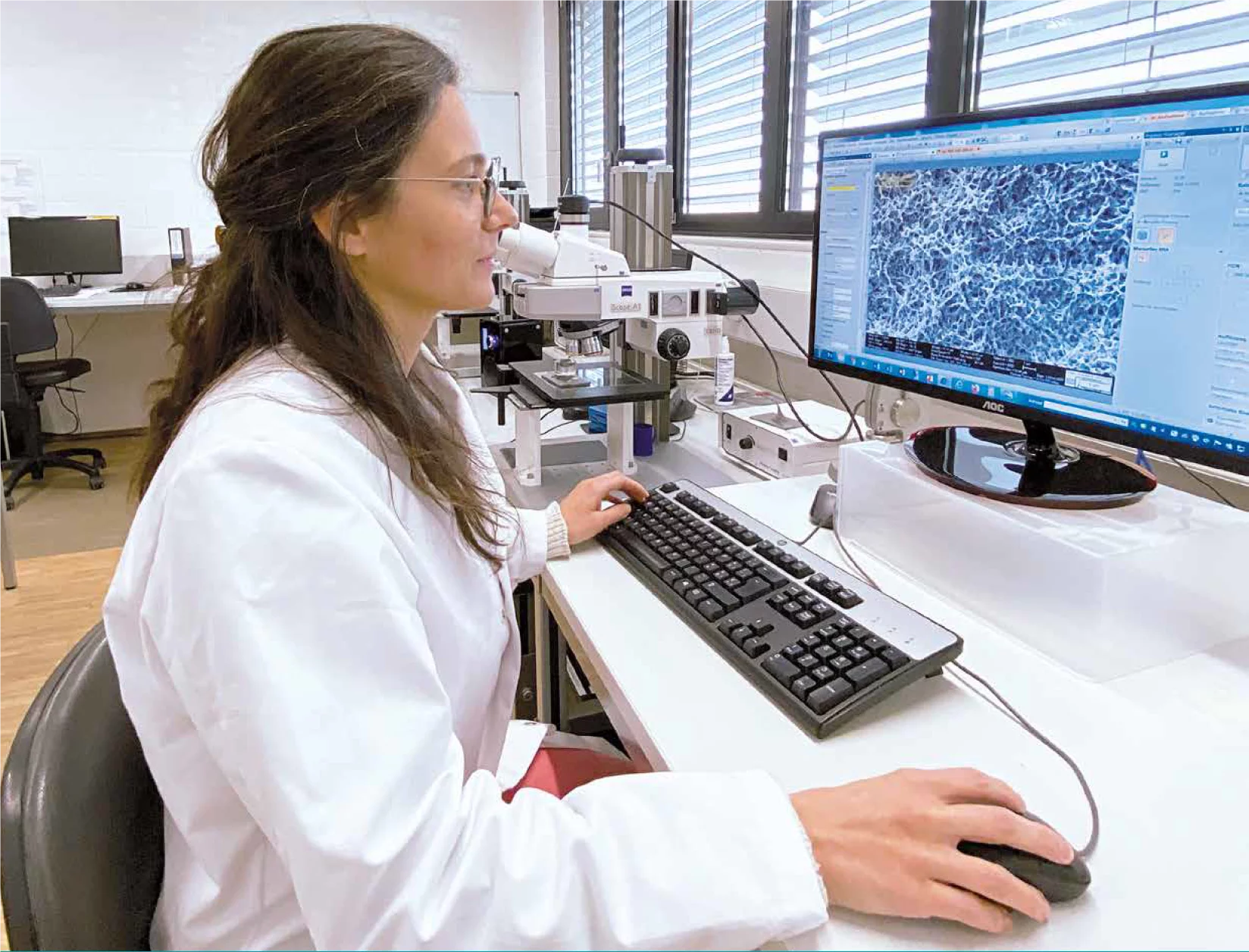Even as a doctoral student at PSI, Agnese Carino wanted to put the findings of her research into practice and did not hesitate to present her business idea to the CEO of Medicoat AG, Philipp Gruner. She wanted to develop a novel coating for small implants, which accelerates the recovery of the patient, into a product. Supported by the Hightech Zentrum Aargau this was the starting point of the joint SNI project NanoCoat. Carino was awarded the Founder Fellowship by PSI for her business idea. This program supports the transition from promising research findings to marketable products. We are pleased that Dr. Carino is now working with Medicoat to advance the commercialization of this technology.
Further information on the NanoCoat project: When an artificial joint is inserted into the human body, the body only sees its surface - it determines whether the bone grows stably to the implant or not. Medicoat AG coats implants so that they integrate optimally into the bone. The proven hydroxyapatite coating has chemical properties similar to those of human bone and thus promotes so-called osseointegration. Unfortunately, such a coating using vacuum plasma spraying technology is only efficiently possible for large implants - for example hip joints. A coating for dental implants or finger joints is therefore in very little demand at Medicoat AG. This is despite the fact that dental implants are the most frequently used implants in terms of numbers. Offering high-quality surfaces for smaller implants is therefore particularly interesting. For this reason, Medicoat AG has developed a coating process for a special surface, based on the work of Agnese Carino, in collaboration with PSI and the University of Applied Sciences Northwestern Switzerland (FHNW). With the support of the Hightech Zentrum Aargau, Medicoat AG submitted this project to the Swiss Nanoscience Institute (SNI). Also on board were the companies Atesos medical AG from Aarau and Meisinger from Germany.

